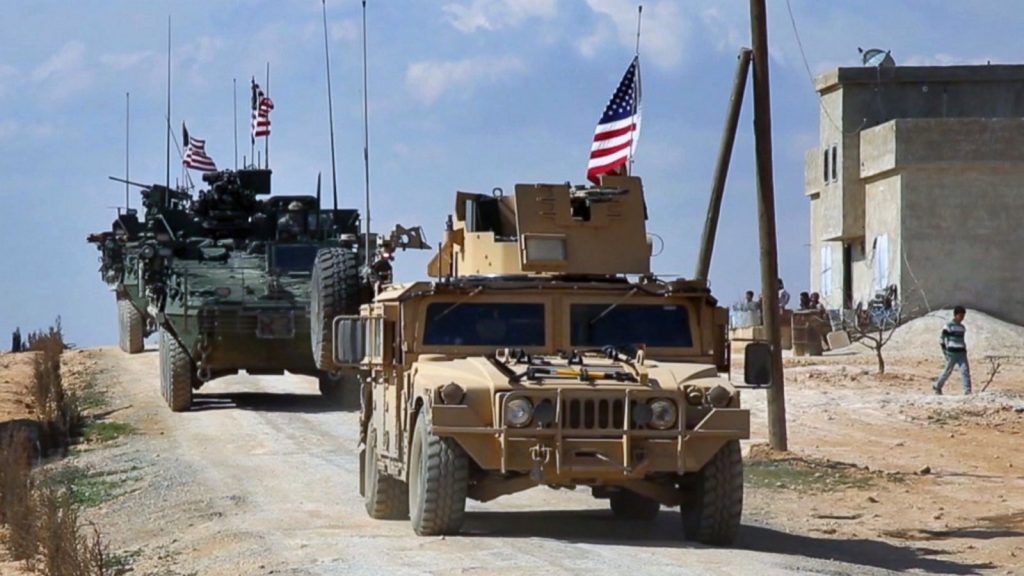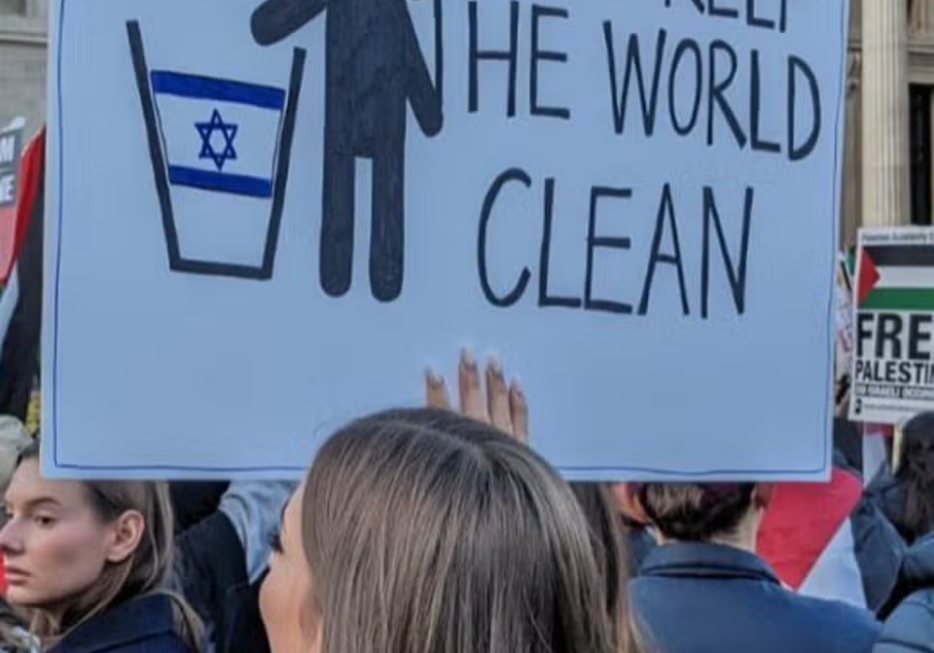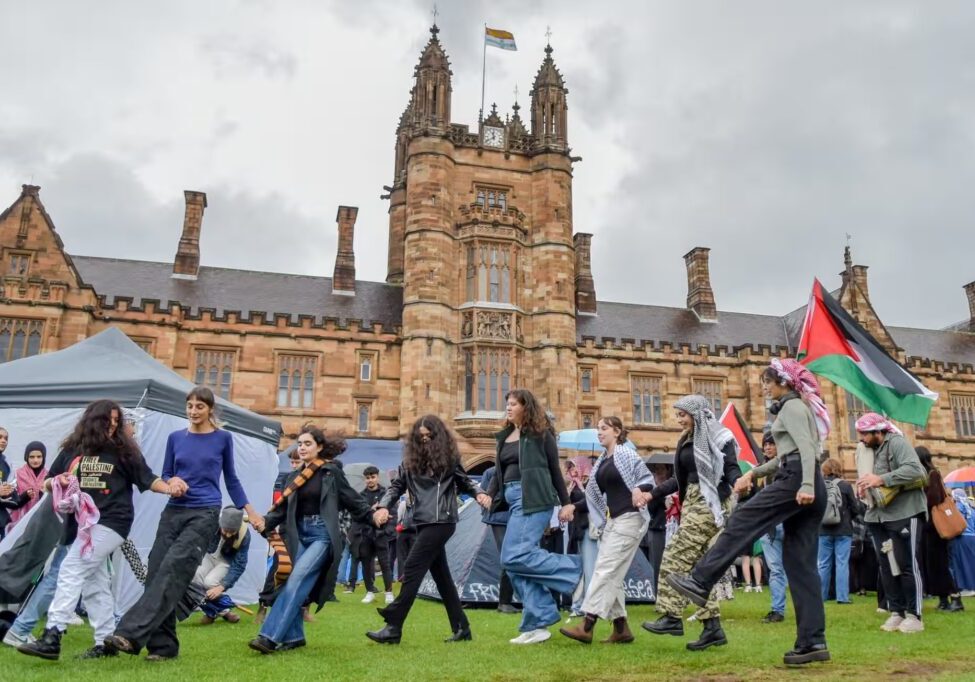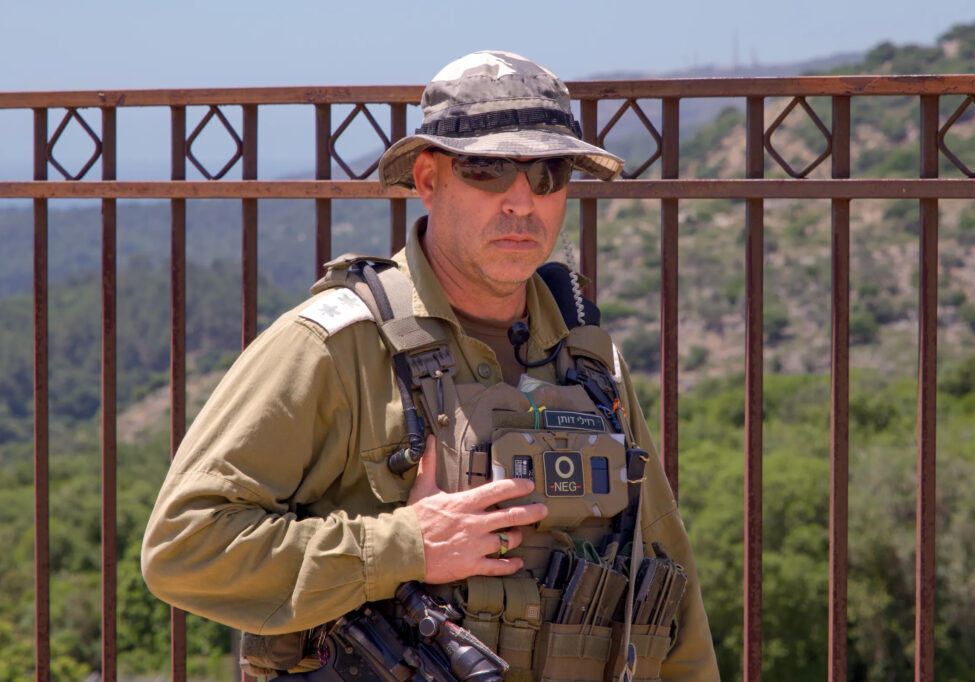Australia/Israel Review, Featured
Editorial: The new rules in Syria
Jan 29, 2019 | Colin Rubenstein

The rules of engagement have changed in Syria following US President Donald Trump’s announcement that US forces will be withdrawn – even though the exact timetable and circumstances still seem to be unclear, and may be delayed. A new situation means new rules – and Israel has demonstrated it intends to be a major player in shaping those rules with an unprecedented real-time acknowledgement of a massive wave of airstrikes against Iranian facilities and Syrian air defences on January 20 and 21.
There will be no more behind-the-scenes shadow boxing with Qassem Soleimani, commander of Iran’s Qods Force, the expeditionary wing of the Islamic Revolutionary Guard Corps (IRGC). The new strategy is overtly to degrade and contain the Iranian threat.
This has been apparent since an interview outgoing IDF Chief of Staff Lt.-Gen. Gadi Eisenkot gave to the New York Times on Jan. 11. In it, he openly took credit for leading an intensive and largely successful Israeli effort to repel Soleimani’s plans in Syria. Eisenkot said the Iranian “vision” was “to have significant influence in Syria by building a force of up to 100,000 Shi’ite fighters from Pakistan, Afghanistan and Iraq. They built intelligence bases and an air force base within each Syrian airbase. And they brought civilians in order to indoctrinate them.”
The Iranians have now been forced to pull back some of their forces and limit their plans, according to reports, and Eisenkot suggests the intense Israeli military efforts in Syria over the past 18 months – known in Israel as “the campaign between the wars” – is the primary explanation. The former IDF chief says Soleimani miscalculated: “His error was choosing a playground where he is relatively weak… We have complete intelligence superiority in this area. We enjoy complete aerial superiority. We have strong deterrence and we have the justification to act.”
Israel’s military campaign has had a simultaneous and complementary diplomatic track, in which Israel engaged Russia to limit Iranian expansion, specifically during a regime offensive against the southern province of Deraa. Russia reportedly agreed to hold back Iranian forces and Israel agreed to allow the offensive. Unfortunately, it increasingly seems that a conflicted Russia has demonstrated neither the will nor the capacity to enforce agreements on Iran in the long term – and now condemns Israel’s latest actions and demands that they cease, while at the same time warning all parties to stop their geopolitical struggles in Syria.
Israel’s new public offensive coincides with the US withdrawal announcement that has triggered a frenzied diplomatic and military scramble between Turkey, the Assad Regime and its allies for control of a significant chunk of Northern Syria, currently controlled by the US and its Kurdish allies. Meanwhile, in the western province of Idlib, al-Qaeda-affiliated groups have essentially absorbed whatever remained of the original opposition against Assad.
The US had tried to compartmentalise its involvement in Syria by ignoring the civil war and focusing its military efforts almost solely on fighting the Islamic State since its intervention in 2014. Yet the US played a vital role by the mere presence of its soldiers and their effective control over a key area of Syrian territory – both preventing Iran from completing its planned land corridor from Iran to the Mediterranean, and giving the US a credible seat at the table in any discussion of post-war arrangements.
Top Trump Administration officials like National Security Advisor John Bolton and Secretary of State Mike Pompeo are trying to reassure Mideast allies that the US will still be involved in shaping Syria’s future – including trying to exclude Iranian military forces from the country – but, regrettably, it is clear the leverage of a post-withdrawal US will be severely diminished.
Israel does not seek a seat at the table in shaping post-civil war Syria but is trying to ensure that the key players – especially Russia – know that stability in Syria will not be possible if Israel’s one-key interest there is not satisfactorily addressed.
For all of the complex dynamics of the overlapping wars in Syria, Iran is there primarily to uphold and strengthen its “axis of resistance” against Israel – to seek to destroy Israel as Iranian military commanders have stated repeatedly. Israel is only intervening to try to ensure this doesn’t happen.
Aside from the physical presence of IRGC militias from across the region near the border, Israel’s other concern is Iran’s precision missile project in Syria and Lebanon, which would exponentially increase the threat of the already very formidable Hezbollah missile arsenal.
To counter this, Israel has reportedly bombed secret underground Iranian missile factories throughout Syria.
Last September at the UN General Assembly, Israeli PM Binyamin Netanyahu publicly exposed three underground missile factories in a Hezbollah-controlled neighbourhood of Beirut where existing missiles were to be fitted with Iranian-supplied precision missile guidance systems.
Reports say that they have been shut down as a result of this exposure.
Meanwhile, Israel has also dismantled Hezbollah’s other intended trump card for any future war – the six covert attack tunnels built under the Lebanon border aimed at overwhelming Israeli border communities.
Israel’s successes in Syria and Lebanon are actually demonstrations of a larger picture. The Iranian-led “axis of resistance” has been on an expansionist roll for more than a decade, but is now overstretched and looking very vulnerable. With the Iranian economy flagging in response to renewed US sanctions, the Islamic regime highly unpopular domestically, and even some Europeans recently moving closer to the US approach of pressuring Iran thanks to Teheran’s incorrigible rogue behaviour, there is currently an opportunity to further erode and contain the Iranian-led threat to regional and global stability.
Despite the US withdrawal from Syria, that opportunity still exists, in no small measure due to Israel’s efforts. The key remains focussing on exerting pressure on Teheran and its allies, from both inside and outside Syria.
Tags: Iran, Israel, Syria, United States






